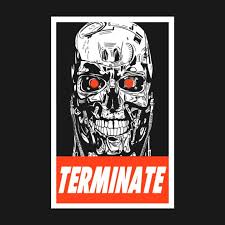Can You Terminate An Irrevocable Trust?

While an irrevocable trust technically means that it can not be revoked, changed or terminated prior to the terms of the trust, many changes and additions to the trust code permit a change or termination of an irrevocable trust under certain circumstances. As many trusts may last for long periods of time, this ability is a great tool for practitioners.
In a recent case, Horgan v. Cosden, the court determined that a trust could not be terminated because such termination would NOT reflect the grantor’s intent. This case is a reminder that, just because a complaint is filed, the court will not automatically grant the termination even if all beneficiaries consent.
Yvonne Cosden (Settlor) created a revocable trust in 1993 and became irrevocable at her death in 2010. Grantor had one son, Christorphen Cosden (“Son”). Son and Joseph Horgan (“Horgan”), the Settlor’s personal assistant and friend, were co-trustees. At Settlor’s death Horgan received $250,000 and the balance of the trust was held for Son’s benefit, income payable quarterly. At Son’s death, the principal would be distributed to 3 institutions of higher education (the “Charities’).
The income and the remainder beneficiaries all agreed to an early termination of the trust with Son receiving the bulk of the monies, approximately 2 million, and the Charities receiving 1 million.
Son filed a complaint for the termination. Horgan responded that the termination was not in accordance with Settlor’s intent as she wanted to provide for Son for the rest of his life and then provide for the principal distributions to the Charities.
The lower court found for Son and entered a summary judgement against Horgan, allowing for trust termination and determined that the termination was in the best interest of the beneficiaries “because it will preserve the assets held in the Trust by elimination of unnecessary expenses related to trust administration”.
On appeal, the court reviewed Florida law and reiterated that the “Settlor’s intent is the polestar of trust interpretation”. A court determines “the settlor’s intent from the plain and ordinary meaning of the terms set forth in the Trust instrument“.
Son’s argued that his mother’s intent is fulfilled because the Son and the Charities would receive the assets. Unnecessary expenses, such as trustee fees, would be saved and avoid waste and avoid the risk of market fluctuation.
The court, however, reviewed the trust and stated the “plain language of the Trust reflects that the Settlor wanted to provide for her son financially via incremental distributions of income …. and THEN (emphasis added) give the entire principal to the three educational institutions.” The court also reviewed the Settlor’s prior amendments noting that she could have made an outright distribution to her son but chose not to do so.
The appellate court determined that the Settlor chose 2 trustees and was aware of the trustees’ fees and administration expenses because she provided for them in the trust. The decision was reversed and remanded to enter a judgment in favor of the trustee.
ADVICE: Do NOT assume that, because all beneficiaries agree, that a trust can be changed or terminated. In most cases, ALL parties, including the trustees, should consent prior to the filing of any complaint. Was the trustee who did NOT consent motivated by financial greed or by true concern of the settlor’s intent? If, however, the principal of the trust could have been used for Son, maybe the results would have been different. A court will not always “rubber stamp” an agreement, especially when a trustee does not consent. Get all parties to agree BEFORE going to court.
WORD OF THE WEEK: Split-Dollar Insurance arrangement is a type of arrangement in which two or more parties share the costs and benefits of a life insurance policy. While these arrangements are generally used in business settings between an employer and employee, the arrangements can also be set up between individuals (sometimes called private split dollar).
In a split-dollar insurance arrangement, an employer and employee execute a written agreement which outlines the premium cost, cash value and death benefit of a permanent life insurance policy and the allocation of each to an employer and employee. Split-dollar plans are frequently used by employers to provide supplemental benefits for executives and/or to help retain key employees. Under current tax law, the split- dollar arrangement has to meet the economic benefit rule or a loan arrangement.
GENEROSITY IS A KEY TO HAPPINESS…REACH OUT AND HELP SOMEONE TODAY! 😎

